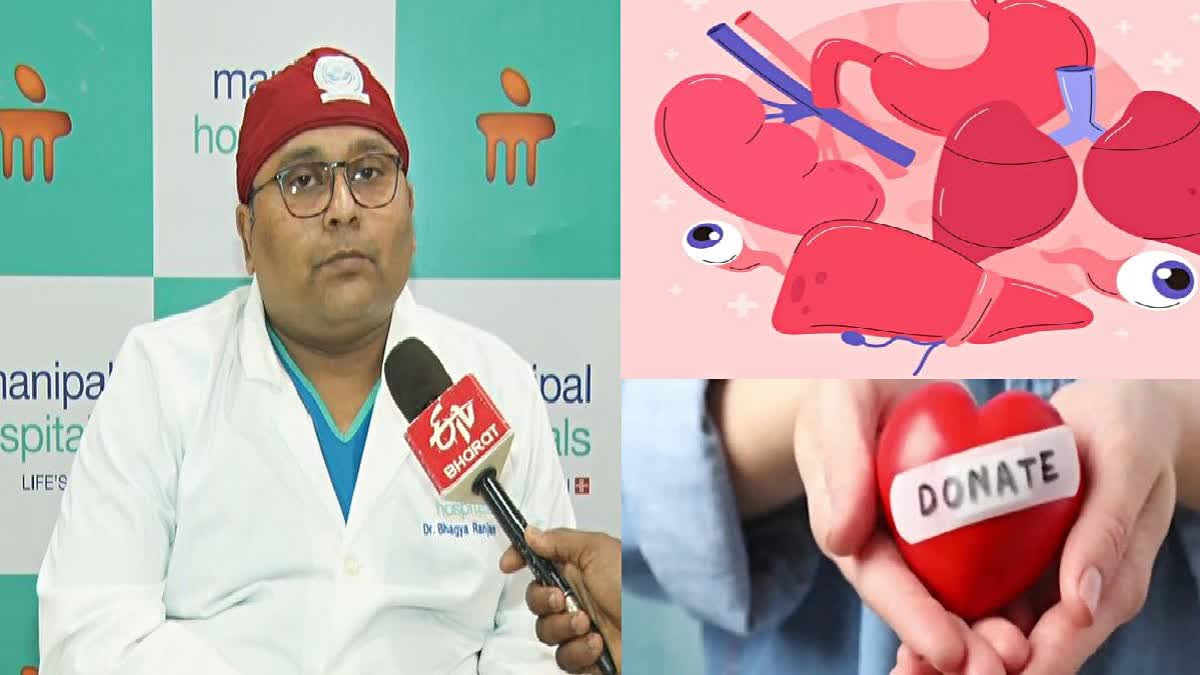Bhubaneswar: When 25-year-old Priya lost her battle with a sudden brain aneurysm, her parents were lost in unimaginable grief. Yet, amidst their sorrow, they made a choice that turned their tragedy into hope for others. Priya’s heart beats on, her kidneys gave life to two persons, and her corneas restored sight to someone who had lived in darkness. Priya’s story isn’t unique, but her legacy reminds us that organ donation isn’t just about giving life; it’s about finding meaning in loss.
Similarly, in the ICU of a bustling city hospital, a young boy clings to life, waiting for a heart. In another ward, a grieving family faces the difficult decision of donating their loved one’s organs. These two moments, though worlds apart, converge in an act of immense courage and humanity—organ donation.
Organ donation is more than a medical process; it is a profound act of kindness, a gesture that transforms loss into hope. In a world where advanced medical science saves lives, the need for organ donors has become more critical than ever. Thousands of people wait each day for a second chance at life, but the shortage of donors remains a major challenge in India.
The Growing Need for Organ Donation
Organ transplantation has become a lifeline for those suffering from end-stage organ failure. The heart, lungs, kidneys, liver, and even corneas from brain-dead people can save or improve the lives of others. However, India faces a severe shortage of donors. According to Dr. Bhagyaranjan Jena, this shortage is a systemic issue, increased by a lack of awareness and an underdeveloped organ collection system.
“Every year, around 1.8 lakh people suffer from kidney diseases, but only 6,000 kidney transplants are performed. Similarly, 50,000 patients need heart transplants, yet only 10 to 15 are done annually,” explains Dr. Jena.
Creating Awareness: A Light of Hope
Odisha has taken a few steps to promote organ donation. The 'Abhiman Program' has fostered awareness, encouraging families of brain-dead patients to donate their loved ones’ organs. Additionally, the state honors donors with the ‘Suraj Samman’, a program launched in 2020 to recognize their noble contributions.
Understanding Organ Donation
Organ donation can be categorized into two types:
• Living Donation: Family members donate organs like kidneys or liver segments to save the lives of their loved ones. This type of donation follows strict guidelines from the National Organ and Tissue Transplant Organization (NOTTO).
• Cadaveric Donation: Organs from brain-dead people are transplanted into recipients. The family’s consent is critical in these cases.
Dr. Jena emphasizes the need for proper facilities such as ICUs and operating theaters in hospitals to facilitate organ donation.
The doctor further said, there is a huge need for organ donation in our country. Every day thousands of people wait for organs. Keeping this in mind, the central government started NTORC. Its aim was to encourage government and private hospitals in the state to donate organs so that more people come forward for organ donation. Organs can be collected in hospitals which have facilities like ICU and OT. He also says that a Non-Transplant Organ Retrieval Center (NTORC) is a hospital that can certify brain death and retrieve organs for therapeutic purposes, but cannot perform organ transplants:
Hospitals with at least 25 beds, an operation theater, and an intensive care unit can register as an NTORC. They can identify, certify, and maintain brain-dead donors, and remove and store organs and tissues. NTORCs can work with hospitals registered as transplant centers to keep brain-dead patients stable until the organs are retrieved. NTORCs contact the transplant coordinator to allocate organs based on prioritization norms.
The Role of Families
The consent of the family plays a decisive role in organ donation, even if the individual had pledged their organs before death. “No matter how many pledges a person has made, without family consent, organ donation cannot proceed,” says Dr. Jena.
The decision is often emotionally charged and deeply personal. Families that choose to donate often find solace in the fact that their loved one’s legacy lives on through others.
The Process of Donation
Cadaveric organ donation begins with the declaration of brain death. A series of medical tests, including the apnea test, confirm the irreversible loss of brain function. Once brain death is confirmed, the family is approached for consent.
A team of four doctors—comprising the head of the medical center, a neurosurgeon, a medical officer, and an intensivist—oversees the process, ensuring that all legal and medical protocols are followed.
Challenges and Solutions
Despite the increasing awareness, India’s organ donation rate is only about 0.52 per million population, compared to 49 per million in Spain. The gap is stark, and bridging it requires systemic changes:
• Strengthening Infrastructure: Hospitals must be equipped with facilities for organ retrieval and transplantation.
• Promoting Pledges: Websites like SOTTO (State Organ and Tissue Transplant Organization) allow individuals to pledge their organs, creating a repository of potential donors.
• Incentives for Families: While the law prohibits financial transactions, many private hospitals waive a portion of medical bills for donor families as a gesture of gratitude.
A Lifeline for Thousands
For those awaiting transplants, every donor is a beacon of hope. According to statistics, about 2 lakh people die annually from liver failure or cancer, yet only 25,000 liver transplants are performed. Similarly, 1 lakh corneas are needed to restore sight each year, but only 25,000 corneal transplants take place.
The Way Forward
Organ donation is a noble act that requires collective effort—from individuals pledging their organs to the government building infrastructure and raising awareness. It’s a journey of compassion, where every decision can bring light to countless lives.
As Dr. Jena aptly puts it, “Organ donation is not just a medical process; it is the ultimate gift of life. It’s a legacy that lasts forever.”
Read More



